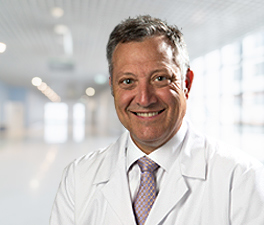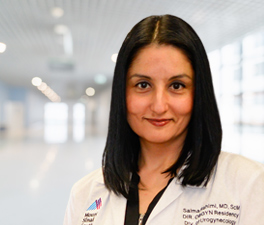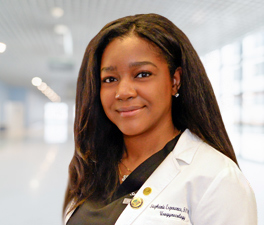
Do I need to see a urogynecologist?
If you answer "YES" to any of the following questions, Dr. Garely and his team can help:
- Do you ever leak urine when you cough, laugh, sneeze, exercise, run, or engage in sexual relations?
- Do you ever feel that you cannot "delay" running to the bathroom?
- Do you ever find that if you don't get to the bathroom fast enough that you will have an accident?
- Do you wake up at night to urinate?
- Do you feel that you don't empty your bladder after urinating?
- Do you feel pressure in your vagina?
- Do you see or feel a bulge in the vagina or rectum?
- Did anyone ever tell you that your "bladder has dropped"?
- Did your physician tell you that you need surgery for incontinence or pelvic prolapse?
- Do you ever have to change positions or put your fingers in or around your vaginal area to help urinate or have a bowel movement?
If I am referred to Dr. Garely but would like to see Dr. Rahimi instead, is that ok?
We work as a team in the Long Island office, and it is never a problem if you would prefer to see Dr. Rahimi. For many of our Russian or Farsi speaking patients this is encouraged. We want our patients to feel comfortable with the care they receive.
Will Dr. Garely operate on elderly or sick patients?
Yes. Many physicians employ "rules" that ensure they only operate on extremely healthy patients. Dr. Garely knows that the "average" patient is not always thin, young, or without medical problems. Having trained and worked at some of the nation’s best medical centers, Dr. Garely is an expert in taking care of "high risk" patients. Working with the patient’s own primary care providers, Dr. Garely can usually prepare even the sickest and oldest patients for successful surgery when indicated. All the hospitals where he operates have specialists who help him manage complicated patients. He is a specialist in using local and regional anesthesia on cases usually done with general anesthesia if that is safer for the patient.
Do all patients in the practice need surgery?
No. Less than half of our patients end up with a surgical procedure. Most patients can be successfully managed with medication or a pessary. Some patients are referred to physical therapists who specialize in pelvic floor disorders and incontinence treatment. Our team is committed to keeping patients out of the operating room. Unless it is absolutely indicated, we will never tell a patient that they "need" an operation.
Do I need to have my uterus removed during vaginal prolapse surgery?
No. This is a highly negotiable point. In some cases, removal of part of the uterus can aid in the repair. Total removal of the uterus is rarely done, and then only in cases where there are abnormal cells or pre-cancer of the cervix. By preserving the lower part of the uterus and cervix, there is no cutting of the vagina, which significantly decreases complications during the repair. While it is not known whether removal of the cervix will impair sexual function, we err on the side of conservatism, and take no chances. Patients who desire future fertility will need special counseling to help them make important decisions.
Do I need to have my ovaries removed if I am having surgery?
No. It is currently recommended that patients undergoing surgery who have reached menopause have their ovaries and tubes removed as a cancer risk reduction strategy. Taking into consideration each patients cancer history, cancer risk factors and family history, our team can tailor a pre-operative plan that is acceptable to each patient. When accessible, the ovaries are visually inspected by our surgeons. If they appear abnormal, only then will they be removed if before menopause or if the plan was to not remove them. If a patient wants to keep their ovaries even after menopause, if they are normal, that is never a problem.
Does Dr. Garely and his team do surgery on patients who "only" need a hysterectomy and no other reconstructive procedures?
Dr. Garely and his team are among the most experienced gynecologic surgeons in the country. If a hysterectomy is indicated, Dr. Garely will review surgical options and help you make the best choice tailored to your problem and perceptions. The best surgical approach is determined by the indication for surgery and a route agreed upon by both you and the team.
Do you use the DaVinci Robot to do hysterectomy's and pelvic prolapse surgery?
When the use of the robot is indicated, members of Dr. Garely's team are the most experienced in the tri-state area. Most patients are surprised to learn that robotic procedures usually take 2-3 times longer than straight laparoscopic surgery, often with more incisions. Robotic procedures can take 3-4 times longer than Dr. Garely's "mini-laparotomy" incision, with multiple small visible incisions on the abdomen compared to his one small incision right over the pubic bone. When consulting any surgeon who promises to do your surgery with the robot, be sure to ask how many cases they have done, and how long the average case will take. The most experienced pelvic surgeons in the world can do this type of surgery with minimally invasive techniques without subjecting our patients to the prolonged operative times associated with the robot, unless it is in the patient’s best interest.
How many days will I be in the hospital?
This depends on the type of surgery performed. In most cases, patients are discharged either on the day of surgery or within 24 hours. No one is "pushed" out of the hospital, and Dr. Garely can usually arrange for a visiting nurse to check on patients at home. Dr. Garely has a very low rate of post-operative infections. This is partly because patients leave the hospital quickly, decreasing the risk of picking up "hospital acquired infections".
I have heard or read bad things about synthetic mesh. Do you use this material?
Yes. Most mesh used in pelvic reconstructive surgery is made of a material called polypropylene. This is commonly called "Prolene", which is one of the products made by Johnson and Johnson. Pelvic prolapse and incontinence is often caused because of a weakness or absence of normal muscle and ligaments. To compensate for these weaknesses, we sometimes need to use materials that can reconstruct or recreate the normal anatomy. We have tried to do this by using the patient’s own tissues. Unfortunately, depending on the type of prolapse, this has resulted in high failure rates. In a quest to achieve better results, new formulations of polypropylene have been developed. This new material is very safe. These new mesh products are thinner, lighter, and less prone to cause complications. Complications include erosion (where the mesh finds its way into the vagina, bladder, or bowel), infection, pelvic pain, and pain during sexual relations.
Research studies have shown that mesh placed through the vagina to fix vaginal prolapse has a much higher rate of complications than mesh applied through an abdominal or laparoscopic incision (often less than 1%). Also, The FDA has evaluated these transvaginal mesh products and compared them to repairs done without mesh. While the mesh may improve the repair of a cystocele (the roof of the vagina), the benefits of placing mesh are outweighed by the complication rates. Therefore, the FDA does not advocate for the use of this material when having a vaginal approach repair of prolapse. Our practice agrees with the FDA guidelines and recommendations.
When considering the safety of any mesh product or procedure, the skill of the surgeon implanting the material is of paramount importance. Before the FDA warning on transvaginal mesh, some surgeons used vaginally applied mesh with low complication rates. Unfortunately, this procedure is not easily taught, which is one reason there have been so many problems with transvaginal mesh. Also, all mesh placed into the vagina, through the vagina, will shrink and contract. This can pull on the muscles and nerves and can cause pain, erosions, and bleeding. If you see a doctor who wants to place mesh into the vagina to fix a prolapse (not for incontinence), you should seek a second opinion so that you completely understand the risks associated with mesh.
As a matter of practice, just to be safe, Dr. Garely will not use any mesh applied through a vaginal incision to correct prolapse. With years of experience, Dr. Garely is one of the country's foremost experts in the management of mesh complications and removal.
Can I have a surgical repair of my vaginal prolapse without having any cuts on my belly and not have my uterus removed?
Yes. Our team participated in the original research trial for the surgical device called Enplace. This device allows our surgeons to resuspend the vagina and uterus into its natural position using one small cut in the vagina. Combined with other parts of the repair, surgery usually is done within an hour and a half and patients almost always go home the same day. Recovery is very fast, and patients are back to normal activity within a few weeks. Because there are no cuts on the belly, complication rates are very low. Our team are among the highest volume surgeons in the world performing these procedures and we do over 4 per week.
Does Dr. Garely do the surgery himself, or do residents and fellows do the work?
Pelvic reconstructive surgery is very complicated. To maintain his high success rates, Dr. Garely does every major step of the operation himself. Residents and fellows participate in the operation, but his operating room is not a place where anyone "practices" on patients. Dr. Garely will "teach" during his operations, but this is done by demonstration, not trial and error. Residents and fellows are integral to the pre and post-operative care of patients. They are in the hospital 24 hours a day and are involved with the minute to minute care. Dr. Garely's assistants don't do anything without consulting with him first. Because of his association with the Icahn School of Medicine at Mount Sinai, Dr. Garely works closely with the Mount Sinai Health System Director of Gynecology (Dr. Ascher- Walsh) and other members of the department. Dr. Garely and his team have immediate access and coverage from some of the best surgeons in New York City.
Do you have experience with removing mesh or treating patients that have had complications from mesh?
Dr. Garely is among the most experienced surgeons in the country for the treatment of mesh complications. He removes mesh on a regular basis. Patients are referred to his New York practice from all over the country.
Can cosmetic procedures be combined with surgery for incontinence and pelvic prolapse?
Yes. This is a perfect time for concurrent procedures. Patients only need one anesthesia, and operating room costs are usually significantly lower. Labial re-shaping, and vaginal tightening can be done by Dr. Garely. If a "tummy tuck", liposuction, or breast surgery is desired, Dr. Garely can recommend some of the top plastic surgeons in the NY area to participate in the surgery. Insurance will usually cover a large part of the costs.
Is there a way to treat stress incontinence without cutting me?
Yes. Our team were among the first group of surgeons in the country to adopt the Bulkamid procedure. Using a small cystoscope placed into the urethra, a needle injects a small amount of liquid around the urethra. This causes the urethra to tighten up, helping to reduce or cure the leakage experienced with coughing, laughing, sneezing, or activity. This procedure is done under local anesthesia with sedation, so you are comfortable. It usually takes less than five minutes. Success rates are very high, and patients resume normal activity as soon as they leave the hospital.
If medication doesn’t help my overactive bladder, is there anything else that can be done?
Yes. If you don’t respond to medication, we have two great options. The first is an injection of Botox.
Are there any other office-based procedures for overactive bladder other than medication and Botox?
Yes. We utilize posterior tibial nerve stimulation which is FDA approved and usually covered by insurance. This therapy uses a acupuncture needle attached to a mild electrical current. Each therapy session lasts about 1/2 hour and patients need to have 12 sessions.
The next step is something called sacral nerve root modulation. This is a wire that is placed in your back near the nerves that supply the bladder. The wire is attached to a small pacemaker which is also under your skin. Before the pacemaker is placed, you need to show that this therapy will work by doing a one- or two-week trial with an external pacemaker, like a small beeper. There are two companies which make this device, Axonics and Medtronic.
Sacral nerve root stimulation is done in the operating room under local anesthesia with sedation and is associated with high success rates.





